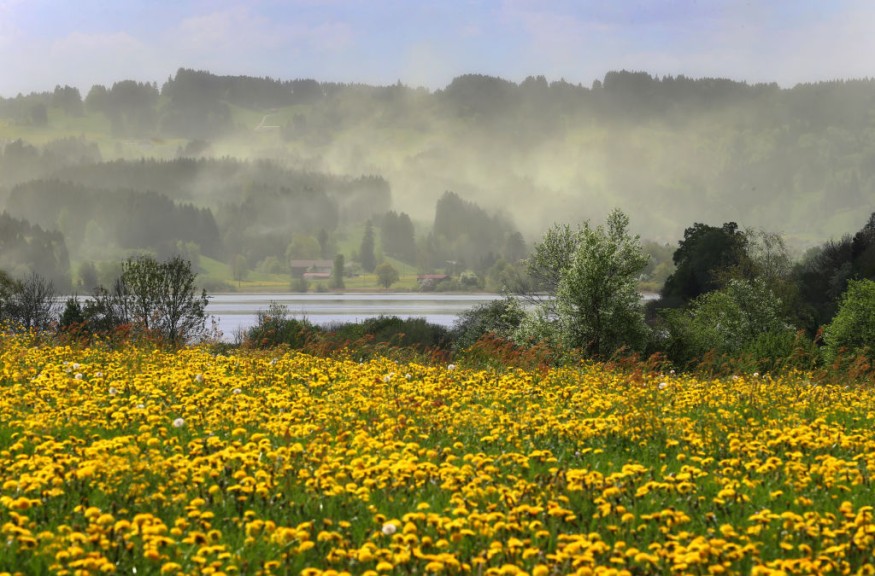Recent years have brought progressively worse allergy seasons, with both earlier starting dates and more pollen in the air, according to experts.
As specified in a Boston.com report, pollen may seem like it is everywhere right now. From coating on vehicles to the wall of pollen that blew through a week ago, pollen has plagued allergy sufferers across Boston.
‘It's been horrendous’: High pollen levels create a tough season for allergy sufferershttps://t.co/YGLNpX6Gc1 pic.twitter.com/56EFRZWNVX
— Boston.com (@BostonDotCom) June 7, 2022
Board-certified allergist Dr. Caroline Sokol, an attending physician in Massachusetts General Hospital's Allergy and Clinical Immunology Unit, said it has been horrendous, "a rough season" for her and her patients.
Dr. John Costa, the Brigham and Women's Hospital's Allergy and Clinical Immunology Practice's medical director, said allergy seasons in the past several years had been progressively more severe.
ALSO READ : Expect Longer, More Intense Pollen Allergy Seasons in Hotter Temperatures Resulting from Climate Change

Global Climate Change
This is related to a study that showed global climate change has allowed for increased plant biomass. Therefore, the plants are springing up, not to mention blooming earlier.
Dr. Costa explained that one is getting a larger number of plants that are growing through the growing season. He added that they live into the fall. And on a per-plant basis, they produce more pollen.
In 2021, a study published in the Proceedings of the National Academy of Science showed that across North America, pollen seasons had gotten approximately 20 days longer in the past 30 years. More so, Boston is no exception, explained Sokol.
She added that the longer pollen season is seen mostly across the northern part of the United States, in areas that used to see colder and longer winters, which shortened allergy season.
Lots of Pollen in the Air
The allergist also said, she always tells her patients to start their allergy medicines around St. Patrick's Day "around here," although anytime there's a warm spring or a warmer than usual winter, that allergy season can begin a little bit earlier.
On a shorter-term scale, looking at the past few weeks, Sokol explained that the lack of rain adds to allergy symptoms.
The physician also said, there are just lots of pollen in the air, and unfortunately, there's not a lot of rain to take it down.
Therefore, she continued, "we've just been stuck" with this pollen that is just coating everything, being blown around by the wind, and its effects are just being felt.
More Than Just Allergies
Costa said, this present time is particularly tough for many allergy patients because of the overlapping allergy seasons, so more allergens are in the air compared to normal.
The picture from a week ago is that "we're at the nexus of two different pollen seasons," he elaborated.
The Weather Channel reported that in Boston, tree pollen levels are high, and both ragweed and ragweed pollen are in the moderate category early this week.
Although increased pollen counts affect allergy sufferers, as detailed in a Healthline report, they are not the only victims. People with no allergies can also be irritated by pollen in the air, resulting in some overlapping symptoms.
A related report on high pollen levels leading to severe allergy season is shown on Local 21 News WHP's YouTube video below:
RELATED ARTICLE: Study Suggests Climate Change Makes Allergy Sufferers' Lives Worse
Check out more news and information on Medicine & Health and Environment & Climate in Science Times.












